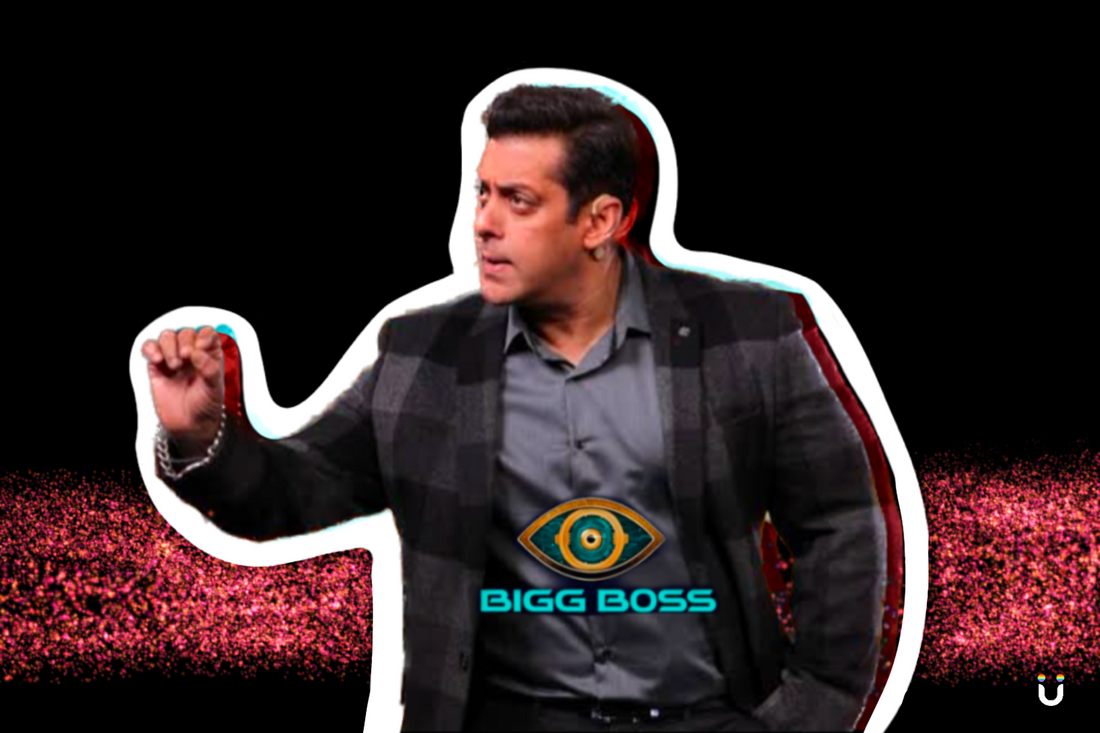Okay, before you judge me, hear me out. I am not here to shit on Bigg Boss but this current season has made me want to shut my laptop, fling it out of the window and gouge my eyes out.
Let me take you on a journey through the chaos and drama that is Bigg Boss — a reality show that started as a guilty pleasure during the COVID lockdown but has now become a mental wrestling match I didn't know I was signing up for.
Three years and five seasons down the rabbit hole - including the OTT version - and I'm ready to retire from my Bigg Boss life. As a therapist, the recent format has compelled me to speak out, especially about their questionable use of the term "therapy."
Spoiler alert: it's not therapy; it's just glorified gossip.
In this season, the spotlight is (rather harshly) focused on a 19-year-old contestant, and it's not for the right reasons. The host seems to revel in scrutinizing her love life under a magnifying glass, even defending her abusive ex who - conveniently - also happens to be a housemate. Adding spice to the mix, her current partner is in the house too, turning her into the designated 'vamp' of the show.
Indian media's tendency to typecast ‘women defending themselves’ as villains continues shamelessly, like the case of a married woman deemed 'too expressive' compared to her calmer (read: more subdued) husband. Trolls (and sometimes, even the host) criticise her behaviour, raising questions about the undue accountability placed on contestants.
This show reminds me a little bit of the Stanford Prison Experiment. The withholding of "luxury" items creates an environment where even the most basic possessions become prized commodities, creating a sense of entitlement and competition. Contestants, much like the guards in the infamous experiment, seem to grasp onto their newfound power with an intensity that goes beyond the bounds of the game. The scarcity mindset, coupled with the perceived threat of losing essential items, throws them into survival mode, where their actions mirror a fight for existence rather than a game for entertainment.
The apparent system of rewards for violent behaviour is very worrisome. Rather than discourage it, the show unintentionally makes aggressive activities more prevalent, creating a culture where such behaviour is seen as crucial to keep viewers interested. The competitors are locked in a vicious loop whereby the more boisterous they are, the more attention they get, driven by a need for validation and visibility. The narrative is unsettling as it prompts inquiries into reality television's role in forming societal norms and strengthening negative stereotypes.
As the participants deal with the fallout from their acts, the toll on mental health becomes more apparent. Bigg Boss, an entertainment-focused pressure cooker, inadvertently becomes a hellhole where people's mental health is compromised in order to get higher ratings. The protection systems that once protected the performers from the show's unrelenting demands begin to break down, revealing their underlying weaknesses. It's hard for a therapist to overlook the ethical concerns of a reality program that appears to push people to the limit for the sake of entertaining viewers.
There remains the unanswered question: who is accountable for the unintended harm to the competitors' mental health in this twisted interpretation of events?
Every Bigg Boss contestant brings emotional baggage, and in this pressure-cooker environment, repressed emotions spill over, leading to a collective loss of sanity. It's a psychological minefield, where defense mechanisms turn into projections of real-life frustrations in this exaggerated, entertainment-laden scenario.
I see it as a social experiment — a lockdown of opinionated people with rationed resources, no entertainment options, and forced interactions. The scarcity mentality triggers fights over trivial things like sugar, creating a microcosm of alliances, betrayals, and a mini-game of thrones (only here, everyone pays their debts). The show doesn't glorify toxic contestants; society does. Is the show the problem, or is it merely a mirror reflecting our societal dynamics?
Ultimately, Big Boss sparks discussions, and sometimes - just sometimes - people change their views for the better. The question remains: is it worth the toll on the mental health of those caught in this reality show storm?
I'll let you be the judge.


